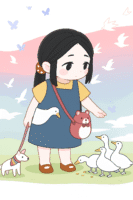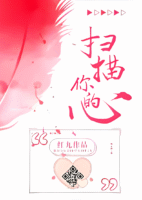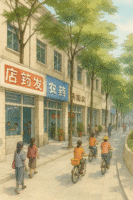Poverty Alleviation C28
by MarineTLChapter 28
After the latest episode aired, not only the Chen family but even the industry started paying attention to J Province TV’s so-called “rustic poverty alleviation variety show.”
Especially the small celebrities who had previously turned down the show’s invitations—they were now regretting it so much they could practically turn green with envy.
Who could have imagined that this grassroots variety show, which had almost been canceled due to repeated guest blunders, would now make a miraculous comeback, showing signs of becoming a massive hit?
Just one live-streamed banquet event had nearly 800,000 concurrent viewers at its peak!
Not to mention the edited long-form video released afterward—
In just a few days, it had already surpassed one hundred million total views on a certain video platform.
Even the show’s TV premiere ratings completely crushed a rival all-star variety show airing in the same time slot.
Could it be that those small celebrities were simply not destined for fame?
With such dazzling numbers, the show’s sponsorship team instantly felt emboldened.
Previously, they had to beg and plead to secure sponsors.
Now, the program’s phone lines were practically overwhelmed with sponsorship inquiries.
But what made the rest of the industry even more envious and resentful was that Wei Sheng, a complete newcomer, had actually received an endorsement offer from Li Ji’s subsidiary brand!
It turned out that after Li Ji’s boss had dinner with Wei Sheng last time, he sobered up the next day and carefully reflected on what Wei Sheng had said. Surprisingly, it all made a lot of sense!
For years, Li Ji had focused solely on the high-end market, never considering the potential of lower-tier markets.
But looking at it now, despite the country’s vigorous efforts to promote rural revitalization, the vast majority of ordinary people were still unwilling to spend money on Li Ji’s premium health-focused seasonings.
At that moment, Boss Li suddenly recalled his childhood memories of running errands to buy soy sauce for his family.
Decades ago, even though most people had low incomes, nearly every household could still afford basic condiments like soy sauce and vinegar.
Back then, his family lived in a small town. Whenever they were running low on soy sauce or vinegar, his mother would give him two mao (20 cents) and send him to the supply and marketing cooperative with an empty bottle to refill.
In those days, bulk soy sauce was stored in large vats with narrow openings. The cooperative had specially made tin ladles, each scooping out half a jin (250 grams). Two ladles made a full jin. If the staff at the cooperative knew you well, they might even give you a little extra to top off your bottle.
A jin of bulk soy sauce cost 1.5 mao (15 cents). After refilling, there would be 5 cents left—just enough to buy a small packet of maltose candy. Back then, in families with many kids, everyone would fight for this errand just for that little sweet treat.
At some point, kitchen condiments started coming in smaller and smaller packages while their prices kept rising. Riding on the trend of “zero additives and healthy ingredients,” these products, just as Wei Sheng had pointed out, used high prices to push ordinary consumers out of the market.
This wasn’t right.
At that moment, Boss Li suddenly felt a sense of mission.
Had technological advancements truly failed to produce affordable bulk condiments like those from decades ago?
As a socially responsible national enterprise, perhaps Li Ji shouldn’t solely chase economic profit…
The truth was, many condiment companies in the country were fully capable of producing low-cost products. But just like certain cheap but effective medicines that had gradually disappeared from pharmacies, these products weren’t phased out due to lack of demand but were deliberately removed from production lines due to insufficient profit margins.
No one knew exactly how Boss Li pitched the idea to the corporate board, but the final outcome was—
Li Ji decided to establish a condiment processing plant in the county where Houzhai Village was located, launching a new subsidiary brand.
This new subsidiary brand would prioritize purchasing soybeans grown by local farmers in D County as raw materials for soy sauce and fermented soybean paste, thereby encouraging large-scale cultivation of high-yield soybeans in the county’s impoverished areas.
In terms of pricing, the subsidiary brand aimed to cut costs by reducing marketing, R&D, and packaging expenses, bringing prices down to levels from over a decade ago.
To put it simply, after adjustments, the most affordable soy sauce from this budget-friendly line would come in eco-friendly plastic pouches—one jin (500 grams) per pack—for just three yuan.
Elderly rural residents might hesitate to buy a 20 or 30 yuan bottle of soy sauce, but they could definitely afford three yuan per jin.
This was probably the first time in history that a brand had signed a spokesperson before even launching its products.
As the brand ambassador for Li Ji’s subsidiary poverty-alleviation brand, Wei Sheng’s endorsement fee was laughably low—just 200,000 yuan per year.
It couldn’t be any higher—after all, 200,000 yuan required selling a lot of soy sauce to earn back.
The once high-and-mighty Li Ji brand had suddenly become so down-to-earth, leaving netizens completely stunned.
After a brief moment of shock, people flooded the internet with comments:
“Three yuan per bag of soy sauce? Sounds like some Hextech-level innovation, but damn it, I actually want to buy a pack just to try it!”
That’s because when Li Ji officially announced the subsidiary brand, they declared that their condiments would recreate the experience of the “supply and marketing cooperative bulk soy sauce and vinegar era” for Chinese consumers.
The nostalgia and anticipation levels skyrocketed!
The supply and marketing cooperative era… even most post-90s kids had only read about it in historical novels online, right?
Rumor had it that back then, every kid in the family would take turns going to buy soy sauce. The mischievous ones would even dip a finger in it on the way home for a taste—was it really that good?
Well, for just three yuan per bag, it wasn’t exactly a risky investment!
Worst-case scenario, if it didn’t taste good, they could just pour it out without feeling bad!
Nowadays, even buying a bottle of mineral water at the supermarket costs two yuan, okay?
When Zhou Mingxing heard that Wei Sheng had agreed to take on Li Ji’s “affordable endorsement,” the corners of his mouth twitched twice. He offered to help Wei Sheng with signing the contract.
After all, Wei Sheng hadn’t signed with a management company yet, and hiring a lawyer himself would be an extra expense. Zhou Mingxing generously stated that since he had been freeloading at the Hu family’s place for several days and had been well taken care of by Wei Sheng’s mother while recovering from his injury, handling the endorsement contract wasn’t a big deal for him.
While the contract negotiations would take some time, back in Houzhai Village, filming for the sixth episode officially began.
More than sixty third-grade students from Class One and Class Two of J City Experimental Primary School, accompanied by their teachers and parent representatives, arrived in Houzhai Village by bus to begin a one-day labor practice field trip.
The moment they got off the bus, the children were stunned by the village’s arranged “transportation team.”
Ox carts!
Donkeys!
And even mules!
Since the village roads weren’t fully developed yet, the school bus couldn’t drive in. But would that be a problem for the ever-resourceful Wei Sheng?
With a quick turn of his eyes, he arranged a “rural-style transportation team” for the kids, having the village chief gather people to drive borrowed ox carts, donkey carts, and mule carts from various households to transport the children into the village.
Sitting in the swaying carts, the kids’ faces flushed with excitement. They clung tightly to the wooden railings, their eyes full of curiosity as they took in the countryside scenery.
By this time, the rice had already been harvested, and the fields had been lightly plowed. The farmers had scattered Chinese milk vetch seeds, and tiny green sprouts had started emerging from the soil.
“Grandpa, there’s so much grass in the fields!” a young voice piped up from behind.
Village chief Hou Tianbao chuckled and corrected them, “That’s not just any grass. This is Chinese milk vetch, something the farmers planted on purpose! It’s a really useful plant.”
“The young sprouts can be picked and used as a vegetable. Once they mature, they can be harvested to feed pigs, cows, and donkeys.”
“In spring, when the Chinese milk vetch blooms, the fields will be buzzing with little bees gathering nectar. The honey they produce is called Chinese milk vetch honey.”
“And once the flowers wither, we can plow the remaining plants back into the soil as green fertilizer. That way, the crops we grow next year will be tall and strong!”
“Wow!!!” A chorus of amazed exclamations erupted from the children.
One of the teachers, seizing the moment, picked a handful of Chinese milk vetch and handed them out to the students.
“Everyone, take a close look at what Chinese milk vetch seedlings look like and how they smell. You can write about it in your essays later~”
Ah, there was no doubt—this was their language teacher!
Going to great lengths to help young students build up their composition material was truly a labor of love.
The “transportation team” slowly came to a stop at the half-constructed visitor experience center.
There was still one more labor class waiting for the elementary school students to participate in.
Wei Sheng, holding a loudspeaker, personally took charge of today’s lesson.
“Kids, this will be the visitor service center of Houzhai Village in the future. Do you see this open space here?”
“Originally, it was supposed to be planted with flowers and greenery, but since Houzhai Village only recently got out of poverty, the village doesn’t have the money to buy flowers. So, we decided to plant a field of Chinese milk vetch flowers here instead.”
“In a moment, each of you will receive a small hoe and a packet of Chinese milk vetch seeds. We’ve already divided up the responsibility plots, and the first ten students to finish planting will receive a prize!”
Hearing that there was a prize, the kids immediately got excited and eager to start.
Next, Chen Mengjie—the “fake farmer” who had been forced into action—picked up a hoe and demonstrated how to dig and plant the seeds.
Not far away, the Chen couple, who had been watching secretly from the crowd, whispered to each other—
“Unbelievable! This is the first time our daughter has ever done farm work!”
“Then why aren’t you getting closer to take more pictures?”
“Aiya, she’s working seriously. Let’s not disturb her. I heard the program team will post high-resolution behind-the-scenes pictures on their official account later. We can just download those!”
As the little kids bent over, sweating and diligently digging holes with their hoes, their teachers and parents instinctively took out their phones to capture photos and videos.
This was a routine part of every field trip—later, they’d have to edit short videos and make presentations as part of the homework.
At that moment, two young men with professional cameras and video stabilizers approached the children.
“Eh? Are you filming for promotional purposes too?” a curious parent asked.
Wei Sheng, like a little fox who had mastered the art of persuasion, grinned and explained—
“I didn’t get a chance to mention this earlier, but for school field trips with at least thirty participants, our Houzhai Village offers a free additional service.”
“Our staff will take individual photos and short video clips of each child during the labor class and provide them to parents for free as digital materials for the school’s labor practice assignments.”
Wow~ That’s so thoughtful!
The parents’ eyes lit up, nearly moved to tears by Houzhai Village’s special service.
Anyone who could help them with their children’s labor class assignments was a true lifesaver!!!
The teachers exchanged glances and couldn’t help but develop a strong interest in Houzhai Village’s labor practice field trip package.
People might think only parents worried about their kids’ labor assignments—but teachers had it even worse, okay?
They have to design scientifically reasonable labor assignments based on textbooks and curriculum guidelines, while also considering what third graders can handle—it can’t be too difficult, but it also shouldn’t be completely free of challenges… Come on! Many young teachers have never farmed themselves, so how are they supposed to know what kind of farm work is suitable for third graders?
But skipping it isn’t an option—this is a required teaching task!
Parents often feel annoyed that teachers keep assigning this and that in the group chats, but they don’t realize that teachers are even more frustrated!
After all, parents only have to help with one assignment, but teachers have to grade at least thirty!
Not to mention, they have to rack their brains to come up with different words to praise and encourage the students. Then, they have to select outstanding assignments, refine them, and submit them for school evaluations…
The worst part? Some parents have truly questionable photography skills—their photos and videos turn out so bad that even the kids are too embarrassed to use them.
Now that they’d heard Houzhai Village actually offers this kind of thoughtful service, several accompanying teachers were immediately tempted.
The only question was… were these two cameramen actually reliable?
(End of this chapter)








![Cannon Fodder Refuses to Be a Stepping Stone for His Cub [QT] Cover](https://marinetl.xyz/wp-content/uploads/2025/06/228114s_x16_drawing-143x200.png)

0 Comments